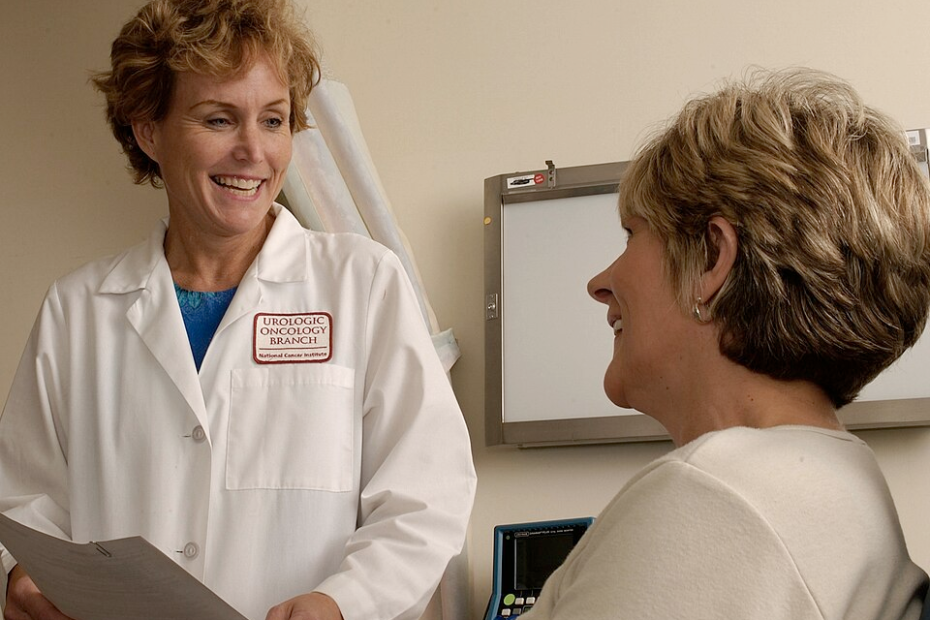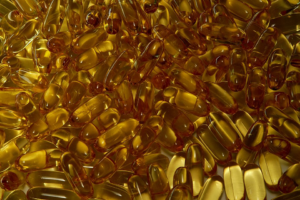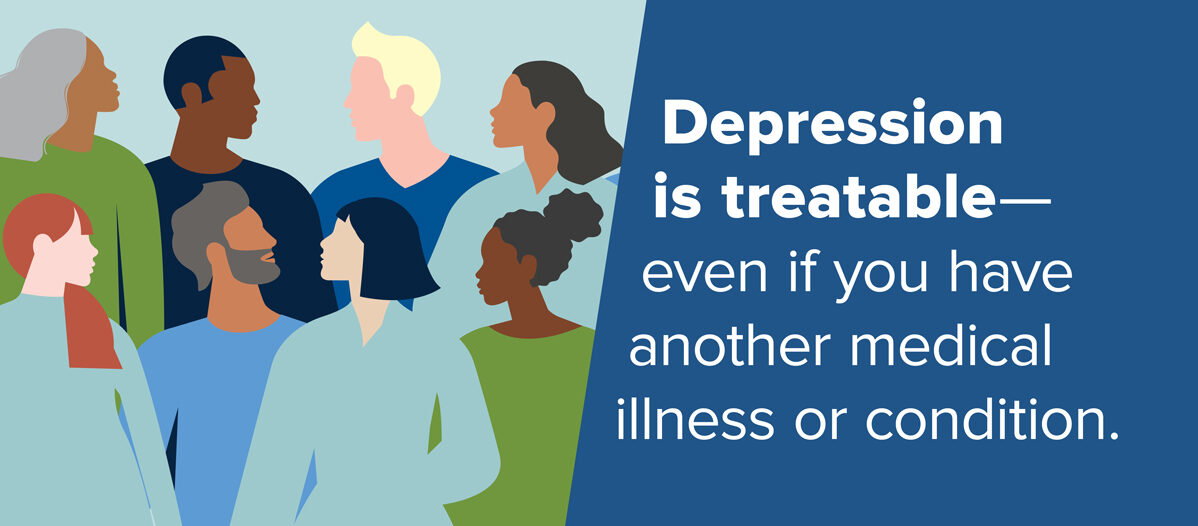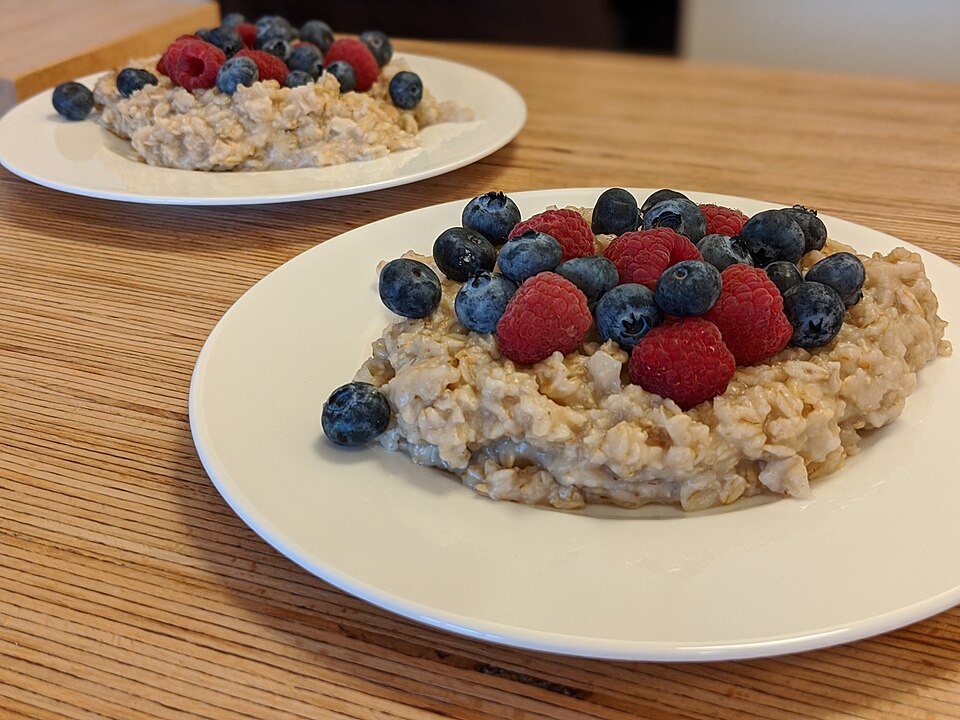Natural Remedies vs Prescription Drugs: What’s the Difference?
You’re standing at a crossroads in the pharmacy. On one side sit bottles of herbal supplements and vitamins. On the other, prescription medications.
Which path should you choose? Or can you walk both safely?.
This question matters more than ever. Today, more than 75% of Americans use some form of dietary supplement. Plus, prescription drug use continues to rise.
So let’s explore the real differences between natural remedies and prescription drugs. Then, you’ll make informed decisions about your health.
Understanding the Basics
Before we dive deeper, let’s define our terms. This helps prevent confusion later on.
What Are Natural Remedies?
Natural remedies include herbs, vitamins, minerals, and other supplements. They’re also called complementary and alternative medicine (CAM).
These products come from plants, animals, or minerals. For example, turmeric is a plant-based anti-inflammatory and Turmeric vs Ibuprofen apparently is a an important thing people are searching about. Plus, fish oil comes from marine sources.
The term “natural” doesn’t always mean “better” or “safer.” It simply describes the source of the product.
What Are Prescription Drugs?

Prescription drugs are medications that require a doctor’s authorization. They’re also called pharmaceutical drugs or conventional medicines.
These products go through years of rigorous testing. The FDA drug approval process ensures safety and effectiveness.
Prescription drugs target specific health conditions. They’re designed to treat, prevent, or cure diseases.
The Regulation Difference: A Critical Distinction
Now here’s where things get really important. Regulation creates the biggest difference between natural remedies and prescription drugs.
How the FDA Regulates Prescription Drugs
Prescription drugs face extremely strict oversight. The FDA requires extensive proof before approval.
The process takes 12 to 15 years on average. It costs over $2 billion to bring one drug to market.
The FDA Drug Approval Journey:
This rigorous process protects public health. However, it also means fewer treatment options reach patients quickly.
How the FDA Regulates Natural Remedies
Natural remedies fall under dietary supplement regulations. These rules differ dramatically from drug regulations.
The 1994 Dietary Supplement Health and Education Act (DSHEA) changed everything. It created a different regulatory framework.
So what does this mean for you? Supplement companies don’t need to prove their products work. Plus, they don’t need pre-approval for safety.
This system operates on trust. Manufacturers are expected to follow good practices. But enforcement happens after products reach consumers.
The Testing Gap
Here’s a comparison that makes the difference crystal clear:
| Aspect | Prescription Drugs | Natural Remedies |
|---|---|---|
| Pre-Market Testing | Extensive clinical trials required | No clinical trials required |
| Safety Proof | Must prove safety before approval | Assumed safe unless proven otherwise |
| Effectiveness Proof | Must demonstrate clinical benefit | No effectiveness proof required |
| FDA Approval | Required before sale | Not required |
| Manufacturing Standards | Strict GMP requirements | Good practices encouraged but less stringent |
| Quality Control | Highly regulated and monitored | Variable across manufacturers |
| Label Claims | Must be proven and approved | Limited claims allowed without FDA review |
This doesn’t mean supplements are unsafe. But it does mean the burden of proof is different.
Safety Considerations: What You Need to Know
Now let’s talk about safety. Both natural remedies and prescription drugs carry risks.
Common Misconceptions About “Natural”
Think about it this way. Digitalis comes from foxglove plants. It’s completely natural.
But without proper dosing, it’s deadly. That’s why it became a regulated heart medication.
Prescription Drug Risks
Prescription drugs aren’t risk-free either. They can cause serious side effects.
However, doctors know about these risks. They’re documented in clinical trials. Plus, they’re listed on labels and package inserts.
This transparency helps healthcare providers make informed decisions. They can weigh benefits against known risks.
Natural Remedy Risks

Natural remedies can cause problems too. Some interact with prescription medications.
For example, St. John’s Wort affects many drugs. It can make birth control pills less effective. Plus, it interferes with blood thinners and antidepressants.
The problem is that many people don’t tell their doctors about supplements. They assume they’re harmless.
Quality Control Concerns
Here’s another issue with natural remedies. Product quality varies widely.
Some supplements don’t contain what their labels claim. Others have contaminants or unlisted ingredients.
A 2015 study tested popular herbal supplements. It found that many contained fillers and unlisted herbs. Some didn’t contain any of the advertised herb at all.
Prescription drugs don’t have this problem. Strict manufacturing standards ensure consistency.
Effectiveness: What Does the Science Say?
Now we reach a crucial question. Do natural remedies and prescription drugs work equally well?
Evidence-Based Medicine Standards
Modern medicine relies on evidence-based practice. This means using proven treatments backed by solid research.
Prescription drugs meet this standard. They’ve been tested in controlled clinical trials. These studies show whether treatments actually work.
But here’s the challenge with natural remedies. Most haven’t undergone rigorous testing.
When Natural Remedies Show Promise
Some natural remedies do have scientific support. Research has validated certain supplements.
Natural Remedies With Good Evidence:
- Omega-3 fatty acids for heart health and inflammation

“Some supplements—like omega-3s—have supportive evidence for specific uses.” - Vitamin D for bone health and immune function
- Probiotics for digestive health
- Ginger for nausea and digestive issues
- Turmeric (curcumin) for inflammation
- Green tea extract for metabolic health
Notice something about this list? These remedies have been studied scientifically. Researchers have published results in peer-reviewed journals.

But many other popular supplements lack this evidence. They’re based on tradition, not science.
The Placebo Effect
We also need to discuss the placebo effect. This is when people feel better simply because they believe they’re being treated.
The placebo effect is real and powerful. It happens with both natural remedies and prescription drugs.
That’s why clinical trials use placebo controls. They help separate real effects from expectations.
When to Choose What: Making Smart Decisions
So when should you use natural remedies? And when do you need prescription drugs?
Situations That Need Prescription Drugs
Some health conditions require proven treatments. Don’t rely on unproven natural remedies for these:
⚠️ Always Use Prescription Drugs For:
- Serious infections like pneumonia or sepsis
- Life-threatening conditions such as heart attacks or strokes
- Chronic diseases like diabetes, high blood pressure, or asthma
- Mental health conditions requiring medication
- Cancer treatment
- Organ transplant medications
- Conditions where delayed treatment causes permanent damage
For these situations, prescription drugs are essential. They’ve been proven to work. Plus, they can be life-saving.
Situations Where Natural Remedies Might Help
Natural remedies can be appropriate for certain situations. They work best for mild conditions and prevention.
Consider Natural Remedies For:
- General wellness and prevention
- Mild digestive issues
- Minor sleep problems
- Nutritional deficiencies under professional guidance
- Stress management and relaxation
- Complementary support alongside medical treatment
Notice the key phrase: “complementary support.” Natural remedies often work best when used alongside conventional medicine.
The Power of Integrative Medicine
Now here’s where things get exciting. You don’t have to choose between natural remedies and prescription drugs.
Integrative medicine combines both approaches. It uses the best of conventional and complementary therapies.
What Is Integrative Medicine?
The National Center for Complementary and Integrative Health (NCCIH) supports this approach. They study how different therapies can work together.
Integrative medicine emphasizes whole person health. It addresses physical, emotional, and social factors.
Plus, it relies on evidence. Practitioners use therapies that have been scientifically validated.
How They Work Together
Let’s look at real examples of successful integration:
Notice a pattern? Prescription drugs handle the serious medical needs. Natural approaches support overall wellness and quality of life.
Cost Considerations: What’s the Real Investment?
Let’s talk about money. Cost often influences health decisions.
Prescription Drug Costs
Prescription drugs can be expensive. Development costs are astronomical. This often translates to high prices for consumers.
However, insurance frequently covers prescription medications. This reduces out-of-pocket expenses for many people.
Plus, generic versions become available after patents expire. These cost much less than brand-name drugs.
Natural Remedy Costs
Natural remedies often seem cheaper upfront. You can buy them without a prescription. Plus, they don’t require doctor visits.
But here’s the catch. Insurance rarely covers supplements. You pay the full price out of pocket.
Also, if a natural remedy doesn’t work, you’ve wasted money. Then, you still need to buy the prescription that works.
The True Cost of Ineffective Treatment
Consider this scenario. You have high blood pressure. Instead of taking prescribed medication, you try garlic supplements.
If the garlic doesn’t work, your blood pressure stays high. This damages your heart, kidneys, and blood vessels.
Years later, you might need expensive treatments for heart disease or kidney failure. The initial “savings” cost you dearly.
This is why effectiveness matters more than initial price. Proven treatments save money long-term by preventing complications.
Drug Interactions: A Critical Safety Issue

Now let’s discuss a serious concern. Natural remedies can interact dangerously with prescription drugs.
Common Dangerous Interactions
Some interactions are well-documented. For example:
| Natural Remedy | Interacts With | Potential Problem |
|---|---|---|
| St. John’s Wort | Antidepressants, birth control, blood thinners | Reduces drug effectiveness, dangerous serotonin buildup |
| Ginkgo Biloba | Blood thinners, NSAIDs | Increased bleeding risk |
| Garlic Supplements | Anticoagulants, HIV medications | Altered blood clotting, reduced drug levels |
| Vitamin K | Warfarin | Reduced anticoagulant effect |
| Grapefruit | Statins, blood pressure drugs | Dangerous drug level increases |
These aren’t the only interactions. New ones are discovered regularly.

Why Interactions Happen
Natural products affect how your body processes medications. They can change drug absorption, metabolism, or elimination.
For instance, some herbs speed up liver enzymes. These enzymes break down medications faster. So your prescription drug leaves your system too quickly.
Other supplements slow down these same enzymes. Then, drug levels build up to dangerous concentrations.
Reading Between the Marketing Lines
Both natural remedies and prescription drugs are marketed heavily. Let’s learn to spot misleading claims.
Red Flags in Natural Remedy Marketing
Watch out for these warning signs:
- “Cure-all” claims that promise to treat multiple unrelated conditions
- “Ancient secret” or “traditional remedy” without modern scientific validation
- “Big Pharma doesn’t want you to know” conspiracy theories
- “Miracle cure” or “breakthrough discovery” language
- Personal testimonials instead of scientific studies
- Claims that seem too good to be true
- Pressure to buy immediately or in large quantities
Remember that legitimate products don’t need hype. They have evidence to support their claims.
Understanding Prescription Drug Marketing
Prescription drug ads also deserve scrutiny. They often emphasize benefits while downplaying risks.
However, the FDA requires certain disclosures. Drug ads must mention major side effects. Plus, they can’t make false claims.
Still, marketing influences both doctors and patients. Be aware of this when discussing treatment options.
Making Informed Choices: Your Action Plan
So how do you navigate these waters? Here’s a practical approach.
Before Taking Any Treatment
Smart Decision-Making Steps:
Questions to Ask Your Healthcare Provider
Don’t be shy about asking questions. Good providers welcome informed patients.
- What evidence supports this treatment?
- What are the potential risks and benefits?
- Are there alternatives I should consider?
- How will we know if it’s working?
- What interactions should I watch for?
- Can I safely combine this with other treatments?
- How long should I try this before seeing results?
Finding Reliable Information
Not all health information is created equal. Use trustworthy sources:
- National Institutes of Health (NIH): Provides evidence-based information on both conventional and complementary medicine
- FDA Website: Offers updates on drug safety and supplement warnings
- PubMed: Database of peer-reviewed medical research
- Mayo Clinic and Cleveland Clinic: Reputable medical centers with excellent patient education
- Your Healthcare Provider: Can interpret research for your specific situation
Avoid relying solely on manufacturer websites or testimonial-based sources. They have financial interests in selling products.
Special Situations Requiring Extra Caution
Some people need to be especially careful. Let’s discuss these special cases.
Pregnancy and Breastfeeding
Both prescription drugs and natural remedies can affect developing babies. Always consult an obstetrician before taking anything.
Some “natural” herbs can cause miscarriage or birth defects. Don’t assume they’re safe just because they’re natural.
Children and Adolescents
Kids aren’t just small adults. Their bodies process substances differently.
Many supplements haven’t been tested in children. Plus, dosing is tricky because it changes as they grow.
Always check with a pediatrician before giving children any supplement or medication.
Older Adults
Seniors often take multiple medications. This increases interaction risks dramatically.
Plus, aging changes how the body processes drugs and supplements. Doses that work for younger adults might be too strong.
People with Chronic Conditions
If you have ongoing health problems, extra caution is vital. Diabetes, kidney disease, liver disease, and heart conditions all affect medication processing.
Work closely with your healthcare team. They can help you navigate complex treatment plans safely.
The Future: Where Are We Heading?
The relationship between natural remedies and prescription drugs is evolving. Let’s look at emerging trends.
Increased Research on Natural Products
More scientists are studying natural remedies rigorously. This helps separate effective treatments from ineffective ones.
For instance, some prescription drugs started as natural products. Aspirin came from willow bark. Metformin originated from French lilac.
As research continues, we’ll better understand which natural remedies truly work.
Personalized Medicine
Genetic testing is changing healthcare. Soon, doctors might predict which treatments work best for your specific genetic makeup.
This applies to both prescription drugs and natural remedies. Personalized approaches could reduce trial-and-error prescribing.
Stricter Supplement Regulation?
Some experts advocate for stronger supplement oversight. They argue current rules don’t adequately protect consumers.
Proposed changes include mandatory product registration and more rigorous safety testing. However, the supplement industry opposes many of these suggestions.
Real-World Examples: Learning from Others
Let’s examine some real scenarios. These illustrate important lessons.
Case Study: Type 2 Diabetes
Maria has type 2 diabetes. Her doctor prescribed metformin. But she also heard about cinnamon and berberine supplements. she asks about Metformin vs berberine and their effects on A1C
Smart approach: She takes metformin as prescribed. Plus, she discusses cinnamon with her doctor. Together, they decide to add it as complementary support.
She monitors her blood sugar regularly. The combination works well for her. But she never stops her prescription medication.
Case Study: Seasonal Depression
John experiences seasonal affective disorder each winter. He tried St. John’s Wort first.
After several weeks without improvement, he saw his doctor. Testing revealed severe vitamin D deficiency.
His doctor prescribed vitamin D supplements and light therapy. When depression persisted, they added prescription antidepressants.
The lesson? Sometimes you need professional evaluation to identify the real problem.
Case Study: Chronic Pain
Sarah has arthritis. She takes prescription anti-inflammatory medication.
She also uses turmeric supplements, practices yoga, and sees a massage therapist. This integrated approach helps her manage pain better than medication alone.
The key: She coordinates all treatments with her rheumatologist. There’s open communication about everything she tries.
Common Myths Debunked
Let’s clear up some widespread misconceptions.
Your Personal Health Philosophy
Now it’s time to develop your own approach. This should reflect your values and circumstances.
Finding Your Balance
Some people prefer conventional medicine whenever possible. Others lean toward natural remedies. Most fall somewhere in between.
There’s no single “right” answer. The best approach is one that:
- Addresses your health needs effectively
- Aligns with your values and beliefs
- Considers scientific evidence
- Involves professional guidance
- Remains flexible as situations change
Staying Open-Minded
Good healthcare requires balance. Don’t dismiss all prescription drugs as “toxic.” But don’t reject all natural remedies as “unscientific” either.
Instead, evaluate each treatment on its own merits. Look at the evidence. Consider your specific needs.
Plus, stay open to new information. Science constantly evolves. What we know today might change tomorrow.
Conclusion: Empowered Health Decisions
You now understand the key differences between natural remedies and prescription drugs. Let’s recap the most important points.
Prescription drugs undergo rigorous testing and regulation. They’re proven to work for specific conditions. But they can be expensive and cause side effects.
Natural remedies offer gentler options for some situations. However, they lack strong regulation and often lack solid evidence. Plus, “natural” doesn’t automatically mean safe.
The best approach often combines both. Integrative medicine uses proven conventional treatments as the foundation. Then, it adds complementary therapies that enhance overall wellness.
Remember these essential guidelines:
- Never stop prescription medications without medical supervision
- Tell all your healthcare providers about everything you take
- Research treatments using reputable, evidence-based sources
- Watch for dangerous interactions between drugs and supplements
- Be skeptical of marketing claims that seem too good to be true
- Monitor your response to any treatment and report concerns
Your health is too important for guesswork. Use both conventional and natural approaches wisely. Stay informed. Ask questions. And partner with knowledgeable healthcare providers.
Because ultimately, the goal isn’t choosing sides. It’s achieving the best possible health outcomes using all available safe and effective tools.
FAQs: Natural Remedies vs Prescription Drugs
Are natural remedies safer than prescription drugs?
Not automatically. Safety depends on dose, quality, interactions, and your health status—not whether something is “natural.”
Can I replace my medication with a supplement?
Don’t stop prescribed meds without medical guidance. Some supplements can complement therapy, but replacements require clinician oversight.
Which supplements have better evidence?
Examples include omega-3s for certain heart indications, ginger for nausea, and vitamin D for deficiency—used appropriately and with monitoring.
What are common herb–drug interactions?
St. John’s wort (many meds), ginkgo (blood thinners/NSAIDs), grapefruit (various drugs). Always disclose supplements to your clinician.
How do I evaluate claims about a “natural cure”?
Look for randomized trials, reputable medical sources, and realistic effect sizes—avoid miracle language and reliance on testimonials.
When are prescription drugs essential?
Serious infections, heart attack/stroke, cancer care, transplants, certain mental health conditions, and situations where delays cause harm.
References
- U.S. Food and Drug Administration. Development & Approval Process | Drugs. Comprehensive overview of how drugs are approved in the United States.
- U.S. Food and Drug Administration. FDA 101: Dietary Supplements. Official guide to understanding supplement regulation and safety.
- National Center for Complementary and Integrative Health. Complementary, Alternative, or Integrative Health: What’s In a Name? Definitions and framework for understanding different health approaches.
- U.S. Food and Drug Administration. Step 3: Clinical Research. Detailed information on clinical trial phases and requirements.
- National Center for Complementary and Integrative Health. NCCIH Homepage. Federal government’s lead agency for scientific research on complementary and integrative health.
- National Institutes of Health. (2022). Evidence-Based Complementary and Alternative Medicine in Current Medical Practice. Review of CAM integration in modern healthcare.
- Harvard Health Publishing. (2012). FDA needs stronger rules to ensure the safety of dietary supplements. Analysis of dietary supplement regulation gaps.
- National Institutes of Health. Too Little, Too Late: Ineffective Regulation of Dietary Supplements in the United States. Critical examination of current supplement oversight.
- Drugs.com. (2018). FDA Drug Approval Process. Step-by-step explanation of how drugs reach the market.
- U.S. Food and Drug Administration. Questions and Answers on Dietary Supplements. Comprehensive FAQ on supplement regulation and safety.
- National Cancer Institute. Complementary and Alternative Medicine (CAM). Evidence-based information on CAM in cancer care.
- American Medical Association. (2022). What Should Dietary Supplement Oversight Look Like in the US? Expert perspectives on improving supplement regulation.
Related Articles
Continue exploring natural health approaches:
- The Ultimate Guide to Natural Diabetes Support – Learn how natural approaches can complement diabetes management
About the Author
The Remedy Verified Team translates complex metabolic science into clear, practical strategies for everyday health.
Medical Disclaimer
This article is for informational and educational purposes only and does not constitute medical advice. It is not intended to replace professional medical consultation, diagnosis, or treatment. Always seek the advice of your physician or other qualified healthcare provider with any questions you may have regarding a medical condition or treatment options. Never disregard professional medical advice or delay seeking it because of something you have read in this article. If you think you may have a medical emergency, call your doctor or emergency services immediately. The information provided here represents a general overview and may not apply to your individual situation. Decisions about health treatments should be made in consultation with qualified healthcare professionals who can evaluate your specific circumstances.
Hero: “Doctor talking with a patient,” National Cancer Institute/NIH, public domain. Wikimedia Commons
Blister pack: Public domain via Wikimedia (CC0). Wikimedia Commons
Grapefruit: Photos Public Domain, CC0 via Wikimedia. Wikimedia Commons
St. John’s wort: TheTechnician27, CC0 via Wikimedia. Wikimedia Commons
Fish-oil capsules: Oddman47, CC0 via Wikimedia. Wikimedia Commons
Turmeric: Maina Tudu, CC BY-SA 4.0 via Wikimedia (link license). Wikimedia Commons
Ginkgo leaves: Dinkum, CC0 via Wikimedia. Wikimedia Commons




